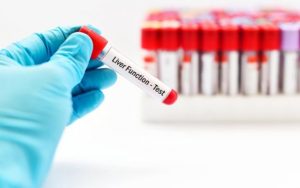 Non-alcoholic fatty liver disease (NAFLD) is growing to be the most common type of liver disease worldwide. The number one cause for NAFLD is obesity and lack of physical activity, which contribute to metabolic syndrome and cardiovascular disease. There are currently no approved treatments for NAFLD, so researchers in Germany collaborated to uncover lifestyle interventions that could treat the condition.
Non-alcoholic fatty liver disease (NAFLD) is growing to be the most common type of liver disease worldwide. The number one cause for NAFLD is obesity and lack of physical activity, which contribute to metabolic syndrome and cardiovascular disease. There are currently no approved treatments for NAFLD, so researchers in Germany collaborated to uncover lifestyle interventions that could treat the condition.
Another approach to treatment is to uncover blood biomarkers, which could help improve diagnosis of NAFLD along with uncovering a patient’s response to treatment.
Advertisement
The main things contributing to NAFLD are a poor diet and lack of physical activity along with a genetic predisposition. A sub-group of NAFLD patients will go on to develop non-alcoholic steatohepatitis (NASH), which is a condition that promotes collagen deposition in the liver— known as hepatic fibrosis. NASH is often symptomless, so many patients are surprised when they become diagnosed with the condition.
Researcher Dr. Jörn Schattenberg explained, “The treatment of this lifestyle-dependent liver disease is still difficult. Although recommendations on leading a healthier life are plentiful, we have seen that it is extremely difficult to implement and adhere to a lifestyle change that improves hepatic and overall health. There are currently no approved pharmacotherapies that can be used to treat NAFLD or NASH. Therefore, we aim to develop a patient-focused, individualized recommendation employing face-to-face counseling and online feedback platforms.”
Lifestyle interventions to stop NAFLD
The researchers began LIFT-off (lifestyle intervention to prevent and improve hepatic fibrosis in non-alcoholic fatty liver disease). LIFT-off seeks to uncover ways to improve NAFLD and reduce the risk of hepatic fibrosis and NASH.
Fellow researcher Professor Detlef Schuppan added, “Our goal is to define readily implementable and sustainable lifestyle changes that will have a long-term effect on the course of the disease. Furthermore, we hope to be able to pinpoint new serum biomarkers that will allow us to reliably track the activity of the disease.”
Advertisement
As the researchers continue to collaborate, they are hopeful that they’ll discover successful strategies to combat and treat non-alcoholic fatty liver disease, which as mentioned, is the most common type of liver disease.
In the meantime, it is recommended to eat a healthy diet and stay physically active to reduce fat accumulation around the liver. Your liver is a highly important organ in the body, as it performs over 500 different functions. Ensuring that you are taking good care of your liver is important to not only keep your liver healthy, but your body as a whole.
Related: NAFLD diet plan: Dietary guidelines for non-alcoholic fatty liver disease
